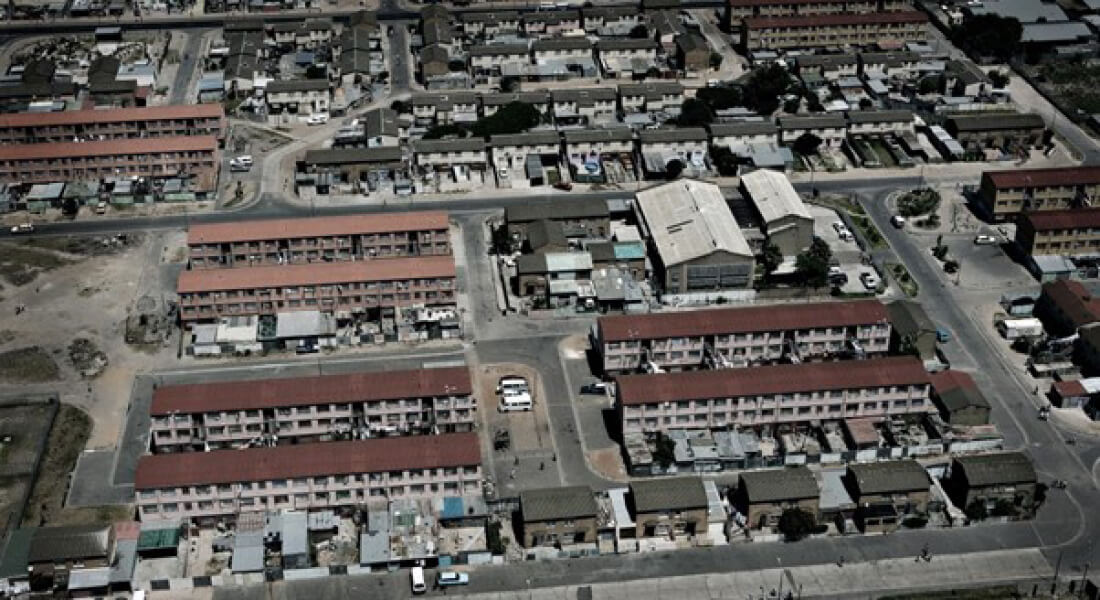New project uncovers digital upheavals in South Africa
With support from the Independent Research Fund Denmark, a new project researches the entry of global tech giants in South Africa, and how digital technologies at the same time create new opportunities for the South African society, challenge the country’s energy supply, and transform life in poor townships.

Even in socially marginalised South African townships, mobile phones and digital technologies have revolutionised everyday life. The introduction of digital technologies, however, creates new demands on the country’s digital infrastructure and increasing demand on energy supply.
These digital upheavals are now the subject of a new anthropological project that has received a supporting grant of DKK 2.9 million from the Independent Research Fund Denmark.
Tech giants such as Amazon and Facebook have arrived in South Africa and both companies are working on major investments in digital infrastructure. The project will unveil some of the regional and national conflicts following their arrival. Digitalisation creates challenges concerning the companies’ use of personal data, whilst the energy-intensive technologies put pressure on the local energy supply. Regular blackouts are a part of everyday life in South Africa.
“In a situation where being connected is crucial for one’s opportunities, concerns about how to afford mobile data is far more critical than any abstract concerns related to how one’s data is collected and used. It is simply not a worry. Scheduled blackouts in the townships force residents to develop strategies for how to go without electricity supply and still make food, light and not least how to charge their mobile phones. Nonetheless, the discussion about the tech giants and the energy consumption of digital technologies rarely come up in the same conversation as the discussion of everyday challenges among people in the townships,” says Associate Professor Karen Waltorp, who is leading the project.
Ethnographic fieldwork in the townships
Karen Waltorp has previously conducted extensive ethnographic fieldwork in South Africa, and in the second half of the project she will, alongside a colleague on the project, follow five families whom she has been in contact for the past 15 years, in the poor township Manenberg, outside of Cape Town.
Through visual and digital ethnographic research, the project aims to shed light on the daily use of smartphones and social media within local families, and combine the mundane everyday uses and new opportunity spaces, the concerns related to uses of data by the tech giants, and the environmental concern in terms of a failing energy grid.
The thesis is that we must look to the South, in this case, southern Africa, as this is where the developments are happening
Like most other places in the world, the mobile phone has become a window onto the rest of the world. But for many of the residents, it has also become a key tool when it comes to networking, finding work, entertainment, and education – or dreams of another, perhaps better, future. Furthermore, the ethnographic research seeks to uncover the families’ perception of their expenses for data usage and the providers’ use of their personal data.
“There are very interesting paradoxes at play, as the tech giants presence create a landscape of opportunities amongst young tech entrepreneurs, while at the same time, it is highly problematic in a number of ways, which we seek to research empirically and across different positions and scales,” Karen Waltorp says.
Ultimately, the ambition is that the project can provide knowledge on the importance of digital technologies for human well-being, democracy, and the environment in South Africa.
“The thesis is that we must look to the South, in this case, southern Africa, as this is where the developments are happening within this field – and fast. The dilemmas regarding new services, expansion of the digital dimension, and thereby the environmental consequences will be on the agenda in Denmark as well in the near future. We want to understand these complex connections better so that we can contribute to a democratic debate about this issues and connections before we all face a similar situation of blackouts – to put it to the point”, says Karen Waltorp.
Contact
Associate professor Karen Waltorp
E-mail: karen.waltorp@anthro.ku.dk
Phone: +45 40 62 97 63
